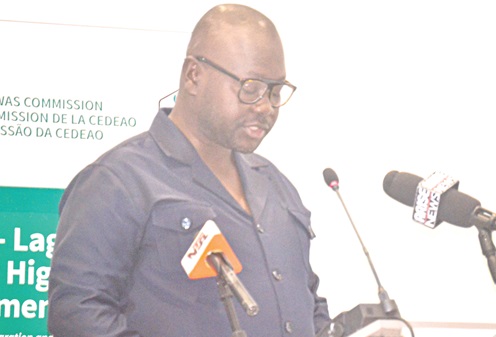The Minister of Roads and Highways, Francis Asenso-Boakye, has reaffirmed the country's commitment to work with colleague ministers in West Africa to complete work on the Abidjan-Lagos Corridor Highway Development project.
He pledged to work “towards achieving the vision of a seamless and integrated ECOWAS, of which this corridor project is a key milestone”.
"I am fully prepared to go beyond the traditional protocols and bureaucratic hurdles, when necessary, to achieve the swift and successful implementation of this project, which is of immense importance to the region," the minister added.
Mr Asenso-Boakye was speaking in Lagos, Nigeria, at the 21st Ministerial Steering Committee Meeting of the Abidjan-Lagos Corridor project last Saturday.
The meeting brought together Roads and Infrastructure Ministers, technical experts, project directors, engineers and stakeholders from the Abidjan-Lagos Corridor
Member Countries of Cote d’Ivoire, Ghana, Togo, Benin and Nigeria, who deliberated on the project implementation.
Technical work
At the moment, key technical studies of the project, comprised of the detailed design, trade and transport facilitation, spatial development initiative and road safety audit are nearing completion.
"We must prioritise holding the board's inauguration as soon as possible so that the authority can move forward with the designs and reports and transition from this stage to the implementation phase, which I believe is what the communities along the corridor are eagerly awaiting," Mr Asenso-Boakye said.
Background
The project is a 1,028km multinational highway initiated by the heads of state and government of the five corridor countries to bring economic development to their citizens and the entire community.
The ECOWAS Commission is the Executing Agency, through its Directorate of Transport, until the operationalisation of the Abidjan-Lagos Corridor Management Authority which is the supranational body that has been mandated to construct, manage and operate the corridor for and on behalf of Benin, Cote d’Ivoire, Ghana, Nigeria and Togo.
About 576km of the corridor passes through Ghana. An assessment of the economic viability of the project has identified Ghana’s section of the planned road infrastructure as the most economically viable route under the project.

